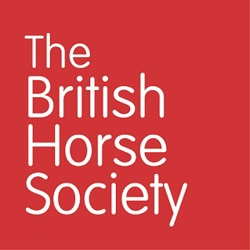New statistics have revealed that horses are still being killed on our roads at an alarming rate, with at least one horse dying each week across the UK in 2023.
Critically, three equestrians were also killed last year as a result of road incidents. This is the highest rate of human fatalities recorded by The British Horse Society (BHS) since 2018. These figures, which are collated by the equine charity each year, are a stark reminder that road incidents involving equestrians continue to persist across the UK.
This is despite the significant changes implemented in the Highway Code in 2022, which set out clear guidance for passing equestrians safely. Overall, 3,383 incidents were reported to the BHS over the course of 2023, with 85% of those occurring because a vehicle passed by too closely or too quickly.
Director of Safety at The British Horse Society, Alan Hiscox says: “Looking at the 2023 statistics, it is clear that a significant number of drivers are still unaware of the advice in the Highway Code and the importance of driving carefully when passing and approaching horses.
"A horse’s instinctive response to danger is to react and move very quickly. Understandably, a driver passing at an inappropriate speed can be intimidating for the horse and be cause for alarm. That is why it is so important for drivers to consider the true power of horses, and to pass horses slowly and with plenty of room, following the advice in the Highway Code.”
As part of their Dead Slow road safety campaign, the BHS continue to inform and involve road users on how to pass horses safely as well as how impactful passing horses too quickly and closely can be. The equine charity are urging drivers to pass horses at no more than 10mph and to leave at least two metres distance. These key behavioural messages align with the guidance set out in the Highway Code.
Alan added: “Far too many lives have been lost over the last 10 years and we are working hard to drastically reduce the number of incidents that take place across the UK. While we recognise and thank all drivers who continue to follow the Highway Code guidance, there is still much work to do, ensuring horses and equestrians are safer when out on the roads.
"Unfortunately, it isn’t always possible for equestrians to stay off the roads due to the shrinking bridleway network. That is why it’s so important that we all play our part to make sure everyone remains safe.”
The BHS is also offering clear advice for equestrians to follow when out on the roads with their horse, including wearing hi-vis and reflective equipment as well as using the appropriate hand signals to make other road users aware of their intentions to manoeuvre.
Alongside this, the equine charity is urging equestrians, and the wider public, to log any equine related safety incidents using the Horse i app. The more incidents that are logged, the more the BHS can do to protect the rights of equestrians on Britain’s roads.
Learn more about The British Horse Society’s Dead Slow campaign and how you can help.
Notes to editors
chevron-down
chevron-up
Contact: The British Horse Society Press Office
T: 02476 840521
The British Horse Society:
Equine charity, The British Horse Society is dedicated to education, equine welfare, protecting and increasing access to bridleways and places to ride and carriage drive off road, and safety for horse and riders. The Society’s thriving and active community of staff and volunteers is committed to improving the lives of horses everywhere.
Case studies and spokespeople available on request
National Statistics: 2023
- 3,383 road incidents involving horses have been reported to the BHS
- Of those, 66 horses have died and 86 have been injured
- 3 people have died, and 94 people have been injured
- 23% of riders were victims of road rage or abuse
- On average, 85% of incidents occurred because a vehicle passed by too closely or too quickly
Since November 2010:
- 15,496 road incidents
- 47 people have lost their lives and 1,686 injured
- 636 horses have been killed and 1,522 horses injured
